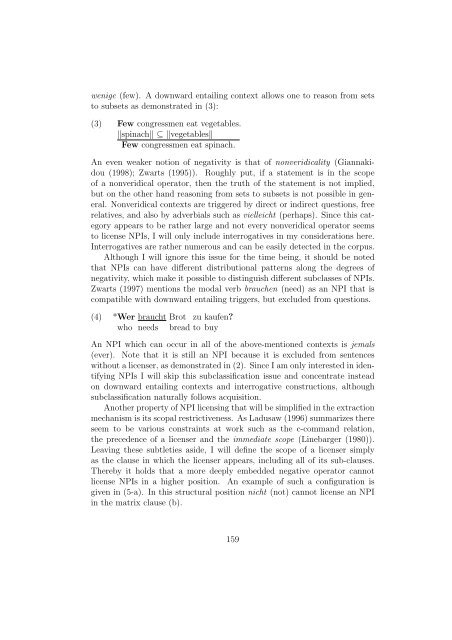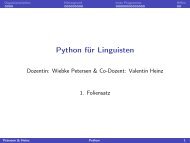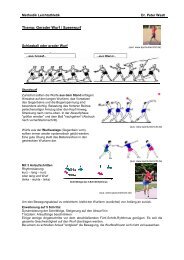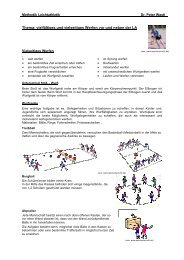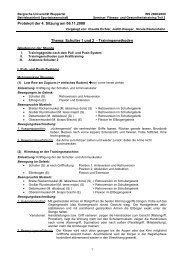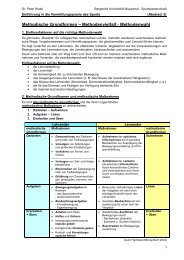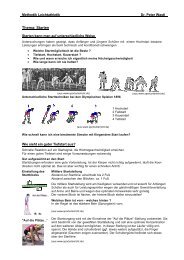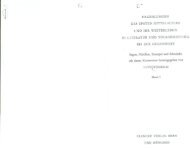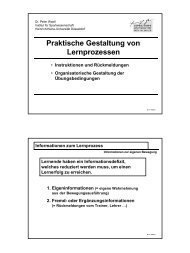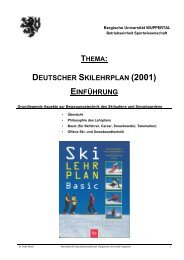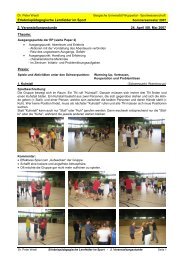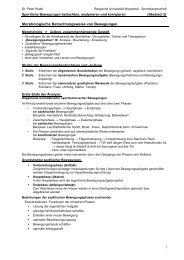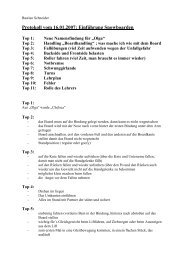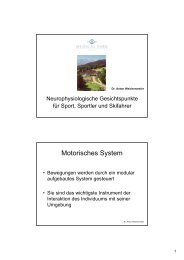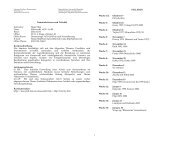Corpus-based Acquisition of Complex Negative Polarity Items
Corpus-based Acquisition of Complex Negative Polarity Items
Corpus-based Acquisition of Complex Negative Polarity Items
Create successful ePaper yourself
Turn your PDF publications into a flip-book with our unique Google optimized e-Paper software.
wenige (few). A downward entailing context allows one to reason from sets<br />
to subsets as demonstrated in (3):<br />
(3) Few congressmen eat vegetables.<br />
‖spinach‖ ⊆ ‖vegetables‖<br />
Few congressmen eat spinach.<br />
An even weaker notion <strong>of</strong> negativity is that <strong>of</strong> nonveridicality (Giannakidou<br />
(1998); Zwarts (1995)). Roughly put, if a statement is in the scope<br />
<strong>of</strong> a nonveridical operator, then the truth <strong>of</strong> the statement is not implied,<br />
but on the other hand reasoning from sets to subsets is not possible in general.<br />
Nonveridical contexts are triggered by direct or indirect questions, free<br />
relatives, and also by adverbials such as vielleicht (perhaps). Since this category<br />
appears to be rather large and not every nonveridical operator seems<br />
to license NPIs, I will only include interrogatives in my considerations here.<br />
Interrogatives are rather numerous and can be easily detected in the corpus.<br />
Although I will ignore this issue for the time being, it should be noted<br />
that NPIs can have different distributional patterns along the degrees <strong>of</strong><br />
negativity, which make it possible to distinguish different subclasses <strong>of</strong> NPIs.<br />
Zwarts (1997) mentions the modal verb brauchen (need) as an NPI that is<br />
compatible with downward entailing triggers, but excluded from questions.<br />
(4) *Wer<br />
who<br />
braucht<br />
needs<br />
Brot zu kaufen?<br />
bread to buy<br />
An NPI which can occur in all <strong>of</strong> the above-mentioned contexts is jemals<br />
(ever). Note that it is still an NPI because it is excluded from sentences<br />
without a licenser, as demonstrated in (2). Since I am only interested in identifying<br />
NPIs I will skip this subclassification issue and concentrate instead<br />
on downward entailing contexts and interrogative constructions, although<br />
subclassification naturally follows acquisition.<br />
Another property <strong>of</strong> NPI licensing that will be simplified in the extraction<br />
mechanism is its scopal restrictiveness. As Ladusaw (1996) summarizes there<br />
seem to be various constraints at work such as the c-command relation,<br />
the precedence <strong>of</strong> a licenser and the immediate scope (Linebarger (1980)).<br />
Leaving these subtleties aside, I will define the scope <strong>of</strong> a licenser simply<br />
as the clause in which the licenser appears, including all <strong>of</strong> its sub-clauses.<br />
Thereby it holds that a more deeply embedded negative operator cannot<br />
license NPIs in a higher position. An example <strong>of</strong> such a configuration is<br />
given in (5-a). In this structural position nicht (not) cannot license an NPI<br />
in the matrix clause (b).<br />
159


